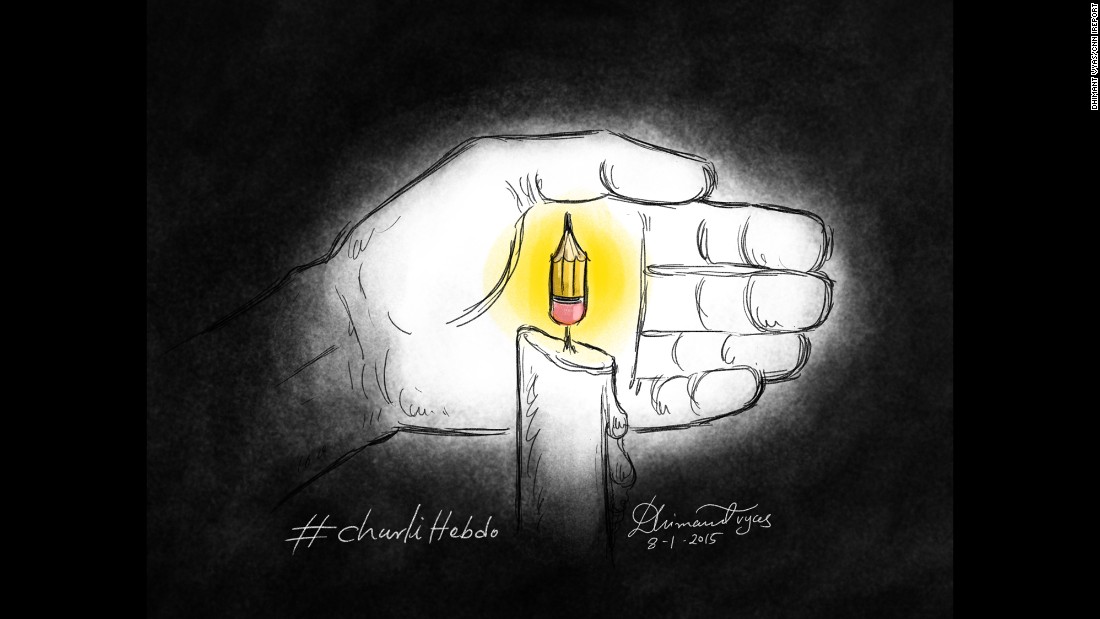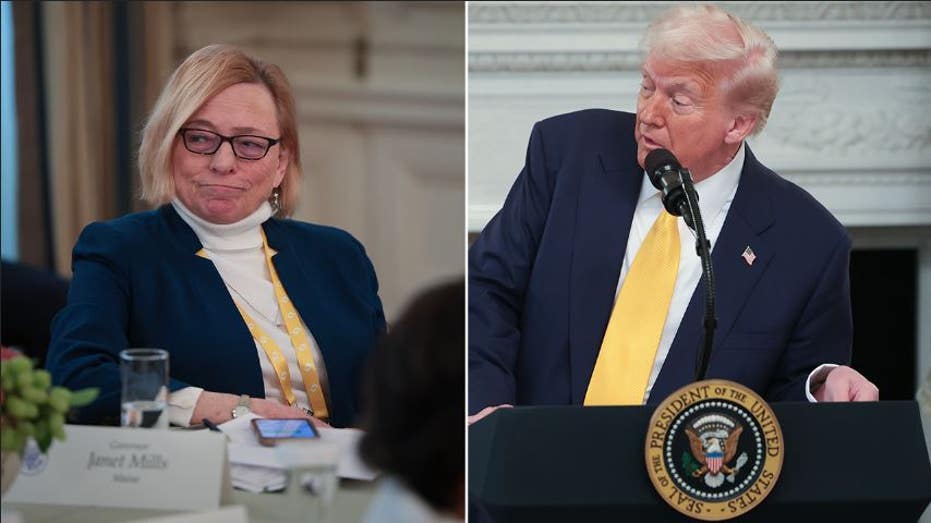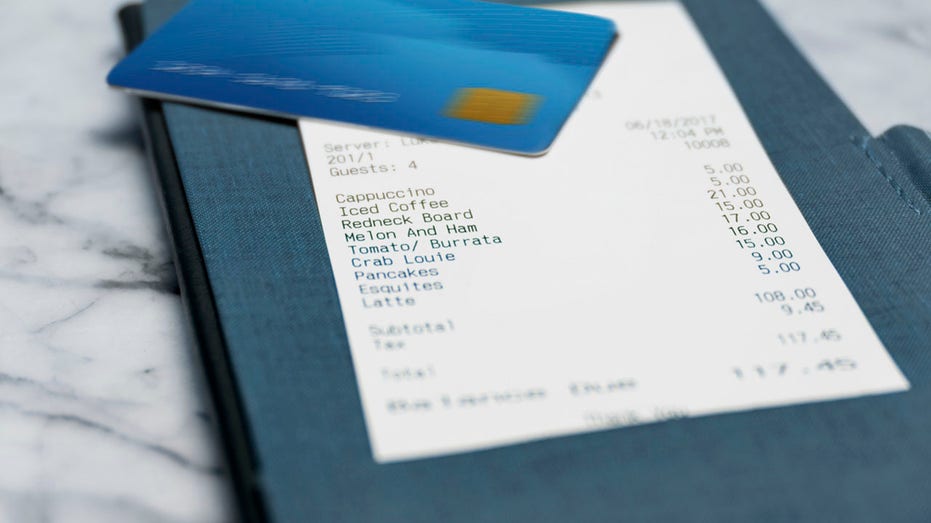- by foxnews
- 15 Mar 2025
2015 Charlie Hebdo Attacks Fast Facts

Here is a look at the January 2015 terror attacks in Paris. From January 7 to January 9, a total of 17 people were killed in attacks on the satirical magazine Charlie Hebdo, a kosher grocery store and the Paris suburb of Montrouge. Three suspects in the attacks were killed by police in separate standoffs. On December 16, 2020, a French court found guilty 14 accomplices of the French Islamist militants behind the attacks.
The Charlie Hebdo magazine began publishing in 1970 with the goal of satirizing religion, politics, and other topics. Most employees came from the publication Hara-Kiri, which was banned after it mocked the death of former President Charles de Gaulle.
The Charlie in the title references Charlie Brown from the Peanuts cartoon. Hebdo is short for hebdomadaire, meaning weekly, in French.
The magazine ceased publication in the 1980s due to lack of funds. It resumed publishing in 1992.
In 2006, Charlie Hebdo reprinted controversial cartoons of the Prophet Mohammed that originally appeared in the Danish newspaper Jyllands-Posten. French President Jacques Chirac criticized the decision and called it "overt provocation."
In 2011, the magazine's offices were destroyed by a gasoline bomb after it published a caricature of the Prophet Mohammed.
Cherif Kouachi:- Born in France, of Algerian descent. - During his standoff with police, Cherif Kouachi told CNN affiliate BFMTV that he'd trained in Yemen with al Qaeda in the Arabian Peninsula (AQAP). - He also told BFMTV that during that time he met with Anwar al-Awlaki, the American-born Muslim who was the face of AQAP until he was killed in 2011 in a US drone strike.
Said Kouachi:- Born in France, of Algerian descent.- Starting in 2009, Kouachi traveled to Yemen frequently, spending months at a time there. - US officials said that in 2011 Kouachi received weapons training and worked with AQAP.
Amedy Coulibaly:- Born in France, of Senegalese descent.- Arrested in 2010 for attempting to free an Algerian serving time for a 1995 subway bombing and spent some time in prison. Cherif Kouachi was under investigation for the same plot, but there was not enough evidence to indict him.- Before he was killed by police, Coulibaly purportedly told CNN affiliate BFMTV by phone that he belonged to ISIS.
Hayat Boumeddiene:- Born in France, of Algerian descent.- Girlfriend of Coulibaly. - Initially it was believed she took part in the shooting of a police woman in Montrouge and the subsequent kosher grocery store attack.- However, a Turkish Prime Ministry source has told CNN that Boumeddiene entered Turkey on January 2, arriving at the Istanbul airport on a flight from Madrid with a man. She had a return ticket to Madrid for January 9, but she failed to take her return flight from Istanbul that day.- Also, a French source close to the nation's security services said it's believed that Boumeddiene is no longer in France and she is thought to have left for Turkey, "of course to reach Syria."- Paris prosecutor Francois Molins has indicated Boumedienne and Cherif Kouachi's wife also were well acquainted, saying they exchanged 500 phone calls in 2014.
- In 2020, Boumeddiene is tried in absentia and found guilty of financing terrorism and belonging to a criminal terrorist network.
January 7, 2015 - - At approximately 11:30 a.m., gunmen force their way into the Charlie Hebdo offices in Paris. The attackers allegedly say they are avenging the Prophet Mohammed and shout "Allahu akbar," which translates to "God is great," according to Molins.
- Twelve people are killed: Eight employees, a guest at the magazine, a maintenance worker and a police officer are killed.
- After fleeing the building, the gunmen encounter another police officer on the street and shoot him at point-blank range.
- Later in the day, the phrase "Je Suis Charlie" ("I am Charlie"), begins trending on social media. Thousands of Parisians take to the streets to hold a vigil for the victims.
January 8, 2015 - - Police name the prime suspects, brothers Cherif and Said Kouachi. Police search for them in an area northeast of Paris, near Villers-Cotterêts.
- One killed: A gunman dressed similarly to those in the Charlie Hebdo attack, all in black and wearing a bulletproof vest, shoots and kills a female police officer in the Paris suburb of Montrouge.
- The Kouachi brothers steal food and gas from a gas station near Villers-Cotterets, according to a gas station attendant.
- A US law enforcement official tells CNN both Kouachi brothers were in a US database of known or suspected international terrorists known as TIDE and also were on the no-fly list and had been for years.
- In the evening, the Eiffel Tower briefly goes dark in remembrance of the victims.
January 9, 2015 - - Four people are killed: In the morning, police and French special forces troops surround a building in Dammartin-en-Goele, northeast of Paris, where the Kouachi brothers are hiding inside with one hostage.
- In the afternoon, a gunman enters a kosher grocery store in the Paris suburb of Porte de Vincennes, taking people hostage. The gunman is identified as Coulibaly. Police also link him to the attack in Montrouge. Also identified is his suspected accomplice, Boumeddiene. Officials say Coulibaly killed four hostages in the grocery store.
- At approximately 5 p.m., police launch an assault on the building in Dammartin-en-Goele, where the Kouachi brothers are hiding. The brothers are killed.
- Shortly afterward, police launch an operation against Coulibaly at the kosher grocery store. Four hostages are killed, and fifteen are rescued. Coulibaly is also killed.
January 11, 2015 - - Across France, approximately 3.7 million people march in anti-terrorism rallies. In Paris, 40 world leaders, including French President Francois Hollande, German Chancellor Angela Merkel, Israeli Prime Minister Benjamin Netanyahu, Palestinian Authority President Mahmoud Abbas and British Prime Minister David Cameron march with a crowd of 1.5 million people.
January 13, 2015 - - Funeral services are held in Israel for the four hostages killed in the kosher market. Netanyahu attends.
- Hollande awards The Order of Légion d'Honneur, France's highest honor, posthumously to the three slain police officers in the attacks, during a memorial ceremony at the Prefecture de Police in Paris.
- Bulgaria arrests Frenchman Fritz-Joly Joachin on a European arrest warrant, citing alleged ties to terrorists and a possible connection to the Kouachi brothers.
January 14, 2015 - - Charlie Hebdo releases a new edition of its magazine, featuring a cartoon of the Muslim prophet Mohammed on the cover, holding a sign that says "Je suis Charlie."
- AQAP claims responsibility for the operation carried out on Charlie Hebdo.
- by foxnews
- descember 09, 2016
Neighbors react as viral 'Tunnel Girl' granted permit to continue digging massive bunker under home
"Tunnel Girl" in Herndon, Virginia, "finally" got her tunnel project approved after pausing the project due to a potential violation. Locals and social media users react.
read more


